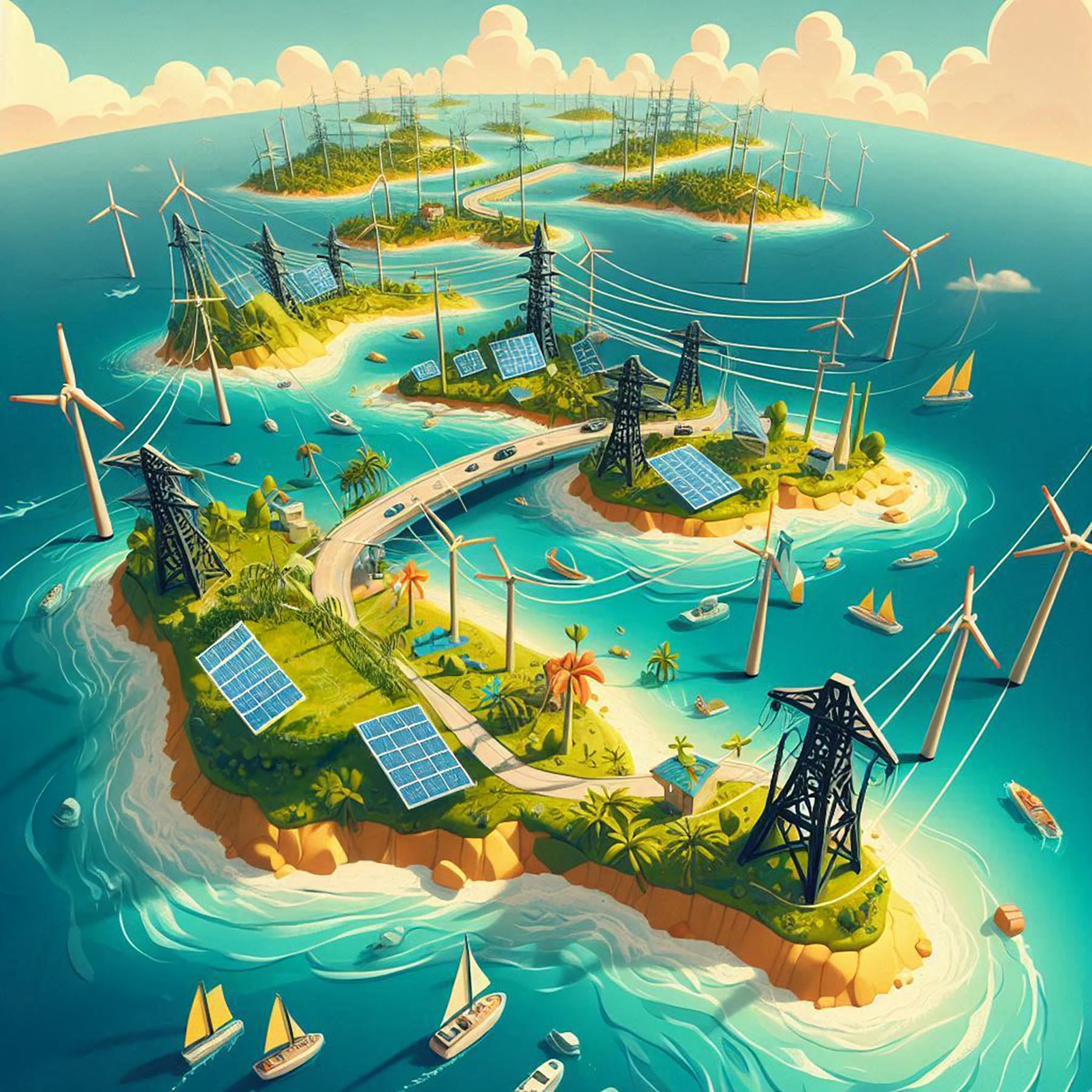Connecting the Caribbean: Purdue conference aims to bring energy security to the islands
The Caribbean region is uniquely suited to sustainable energy production, with abundant wind, solar, geothermal, and marine sources. At a recent conference in Puerto Rico co-sponsored by Purdue, officials proposed the Caribbean Energy Corridor: interconnecting the power grids of all Caribbean islands to offer both energy security and economic security.

“I believe that energy, engineering, economics, and social issues are all related,” said Luciano Castillo, Kenninger Professor of Renewable Energy and Power Systems. “The poverty and migration issues in Central America and the Caribbean all start with economic opportunity, which starts access to low-cost and reliable energy. Our goal is to create economic prosperity through energy security.”
This effort began in 2019 when Castillo, along with a coalition of American and Mexican scientists, proposed converting the US-Mexico border into an energy corridor. Wind turbines, solar farms, natural gas and water pipelines would turn the border into a rich destination for economic opportunity and built-in security.
This initiative garnered much attention worldwide, and led to a series of stakeholder meetings on both sides of the border. Castillo then expanded the vision to include the Caribbean as well, forming the Blue Integrated Partnerships as an interdisciplinary consortium focused on climate adaptation, health, and security, which continues to meet annually.
“We are always sensitive to what is happening around the world,” Castillo said. “AI is only going to increase energy demand worldwide, and right now the Caribbean and Central America are having a difficult time supplying even basic energy needs for their people. If they don’t take advantage of this opportunity now, they may be left out of the next industrial revolution.”

This gave rise to the Purdue-sponsored Conference on Energy Security & Economic Development, which took place in Puerto Rico in February 2025. The event attracted some big names in the region, including keynote speaker Vaughn Miller, Minister of the Environment and Natural Resources for the Bahamas. Rick Echevarria (BSIE '88), former VP of Intel, discussed the role of AI and cybersecurity in the Caribbean. Jim Tompkins, Founder & CEO of Tompkins Ventures USA, talked about the impact of Trump’s tariffs in the Caribbean. Marco Lara discussed how Dominican Republic may become the next Singapore of the Caribbean. Edgardo Mulato, Congressman from El Salvador, delivered the closing presentation. Other attendees came from Puerto Rico, mainland United States, Mexico, Colombia, Panama, and Aruba.
The most exciting idea they proposed? A Caribbean Energy Corridor, stretching from the Bahamas to Cuba and Jamaica, Haiti and Dominican Republic, Puerto Rico, and continuing south to connect the power grids of every island in the chain.
“Most of the world’s regions benefit from interconnected power grids, but Caribbean countries don’t have that,” Castillo said. “In a country like the Bahamas, most of their electricity comes from oil and gas. The typical Bahamian ends up paying 3 to 4 times more for their power than the typical American.”
If an interconnected system were implemented, early data analysis by Castillo’s team points to lowering the potential cost of energy to $0.11 per kilowatt hour; an annual water savings of 602 billion liters; and an annual CO2 reduction of 132 megatons. They also project 50,000 new jobs being created.
Castillo sees an even further stretch goal: creating a Caribbean Union, in the mold of the European Union. “If you bring energy security to the whole hemisphere, you bring a new level of resiliency,” he said. “Economic activity goes up, quality-of-life goes up, security goes up, and mass migration goes down. And the more sustainable energy we install, the more our worldwide carbon footprint goes down, which is important because the Caribbean is vulnerable to hurricanes and sea level rise.”
The event also featured a virtual poster show, with Purdue students offering research talks via YouTube on topics like wind and solar energy, more efficient data centers, and water desalination. Many of them conducted their research as part of Castillo’s ME 514 Fundamentals of Wind Energy class. “Having students innovate real-life energy solutions enhances their educational experience,” said Castillo. “We are always challenging them to work with teams and look for solutions beyond our own borders.”
“This whole Caribbean region is ready to take off in a big way,” Castillo said, pointing to the President of the Dominican Republic recently visiting Purdue’s campus. “If these countries can get together on these important issues, they’re poised to be just as competitive as any region in the world.”

Source: Luciano Castillo, lcastillo@purdue.edu
Writer: Jared Pike, jaredpike@purdue.edu
